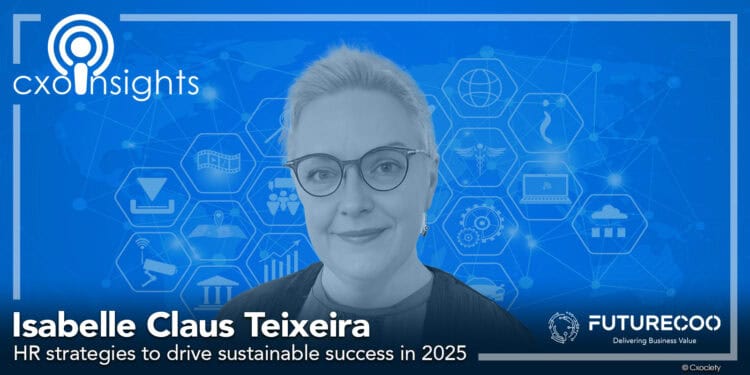As organisations in Asia prepare for 2025, the landscape of work is undergoing significant transformation. According to Gartner's 2025 HR Priorities Survey, a staggering 87% of HR leaders agree that shifting business needs necessitate continuous transformation within their organisations.
This imperative extends beyond HR, influencing all functional leaders who must adapt to a rapidly evolving environment characterised by technological advancements, changing workforce dynamics, and heightened expectations for organisational culture.
In this context, it is crucial for leaders across all functions to engage with the pressing challenges of leadership development, workforce planning, and change management.
By addressing these critical areas, organisations can foster a resilient and agile workforce capable of navigating the complexities of the future.
"It is critical for leaders across all functions to engage with the pressing challenges of leadership development, workforce planning, and change management," states Isabelle Claus Teixeira, founder and managing director at Business and Human Development Consulting. This holistic approach is essential for organisations to thrive in a rapidly evolving environment characterised by technological advancements and shifting workforce dynamics.
The challenge of de-layering
One of the most significant challenges facing HR leaders is the de-layering of organisational structures, particularly in the Asia-Pacific region. Klaus observes a trend where international corporations are re-evaluating their regional teams, opting for a more centralised approach.
“What we see is that companies have gone again into a frenzy of restructuring and reorganisation,” she explains. This de-layering often impacts senior leadership roles, creating a need for HR leaders to manage transitions effectively while ensuring that the remaining workforce remains engaged and motivated.
Investing in leadership development
To address these challenges, Klaus emphasises the importance of investing in leadership development. "We need to keep growing and investing in helping and supporting human beings who are actually trusted and empowered with leading or managing," she insists.
This investment is not merely a cost but a strategic imperative for navigating change and ensuring long-term success. Klaus urges organisations to shift their perspective on talent management, stating, “I don’t think there’s so much of a crisis of talent that is a crisis of talent in leadership or talent in management.” By focusing on nurturing leadership capabilities, HR leaders can create a culture of resilience and adaptability.
Understanding talent shortages
Another pressing issue highlighted by Klaus is the unrealistic expectations placed on employees, particularly in the context of talent shortages. She argues that the perception of a talent shortage is not necessarily due to a lack of available individuals but rather an overestimation of what is required from them.
“There is an unrealistic expectation of what talent can deliver,” she explains. To combat this, Klaus advocates for a more realistic approach to workforce development, which includes fostering learning agility and encouraging employees to develop multiple skills.

“If we start becoming a little bit more realistic and touch back into the humanity… then I think we will not have so much shortage.” Isabelle Claus Teixeira
Integrating change management
Klaus also addresses the significance of change management as an integral part of leadership. She challenges the notion that change management should be treated as a separate function, stating, “It is what leaders have to do as their normal way.”
By integrating change management into everyday leadership practices, organisations can cultivate a culture that embraces change rather than resists it. Klaus notes that leaders must be equipped not only to manage change but also to engage their teams during transitions, ensuring that employees feel supported and valued.
The role of organisational culture
In creating a strong organisational culture that aligns with business goals, Klaus highlights the need for genuine investment in employee engagement and well-being. She points out a recurring issue: "We invest in a lot of the diagnostic, let’s do engagement surveys… but we don’t invest properly in it."
Klaus argues that while organisations often allocate resources for measuring engagement, there is a significant lack of follow-through in implementing changes based on survey results. This disconnect undermines the potential for cultivating a thriving organisational culture.
Moreover, Klaus stresses the importance of leadership role modelling in shaping organisational culture. Leaders must exemplify the behaviours they wish to see in their teams.
She challenges the credibility of leaders who fail to engage authentically with their employees, adding, “If you have leaders who actually do not role model the behaviour, they are expecting… we already have a problem around that culture.”
By fostering a culture of accountability and transparency, HR leaders can create an environment where employees feel empowered to contribute to organisational success.
Embracing agile workforce planning
Looking ahead to 2025, Klaus emphasises the need for HR leaders to adopt agile workforce planning processes. Traditional methods of workforce planning are increasingly ineffective in a fast-paced and uncertain environment.
Instead, she proposes that organisations focus on developing employees' skills and capabilities, enabling them to pivot and adapt to changing demands. “We need to actually invest a lot more onto a concept… to create pivot in our employees,” explains Klaus. By empowering employees with versatile skills, organisations can better respond to unforeseen challenges and opportunities.
A call to action
In conclusion, Klaus’s insights provide a comprehensive framework for HR leaders aiming to drive sustainable success in 2025. By prioritising leadership development, fostering a culture of engagement, integrating change management, and adopting agile workforce planning, HR leaders can navigate the complexities of the future.
As Klaus puts it, “If we want to survive, right… we need to actually have time dedicated in learning a new skill.” Embracing these strategies will not only position organisations for success but also create a resilient workforce equipped to thrive in an ever-evolving landscape.
Click on the PodChats player to hear Klaus elaborate on her strategies on how HR leaders can drive sustainable success in 2025.
- How would you describe the HR landscape in 2024? What has been most interesting, most difficult and most rewarding issues of 2024?
- A common recognition by IT and finance leaders is the issue of talent shortage. I imagine this is not limited to these two functions. In 2024, how did HR leaders in Asia meet these challenges?
- Leaders tell us that change management is an ongoing issue for them. Why is that so?
- What strategies can HR implement to create a strong organisational culture that aligns with the company’s business goals?
- Coming into 2025, how can HR leaders enhance workforce planning processes to anticipate future talent needs and capability gaps?



